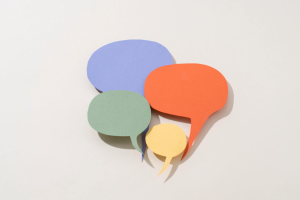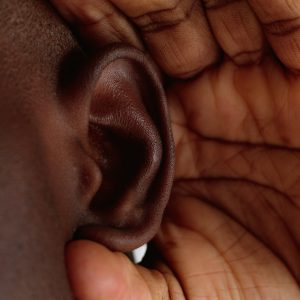Communication informs every aspect of our lives, at home and at work. If we communicate poorly, in what we say, how we say it and how we reach our intended audience, the consequences can be significant – indeed, we can set ourselves and our organisation up to fail, if we get it wrong.
We should ask ourselves:
- What is the effect of a lack of communication on employees?
- What is the impact of the wrong answer?
- How does it impact a team member?
- How does it affect future acceptance of messaging?
- What does it do to the relationship with the customer?
- How does it affect perceptions of our organisation?
The impact of communication breakdown can be poor buy-in among employees, which cascades internally, then ultimately out to clients – it’s contagious.
Communication underpins our personal effectiveness, irrespective of our role and level. We can’t operate without communicating. It’s how we understand the response to what we’ve done; it’s how we draw people towards us and engage them; it’s how we influence outcomes.
Good Communication
“Seek first to understand, in order to be understood” (Covey)
 Communication is as much about listening as telling. The more we listen, the more we pick up and understand how people are feeling. Great communicators are great listeners. If we consider what makes for a successful interview, the interviewee should talk 70% of the time, and the same applies to other successful communications.
Communication is as much about listening as telling. The more we listen, the more we pick up and understand how people are feeling. Great communicators are great listeners. If we consider what makes for a successful interview, the interviewee should talk 70% of the time, and the same applies to other successful communications.
We probably rarely stop to think about what we are doing when we’re communicating. We need to listen actively, make good eye contact, and think about our body language. It’s good to reflect back to our audience and use language which resonates with them. Being able to adapt our approach to connect with people of different ages, with different roles and levels increases our effectiveness.
Considering which channels are the most impactful is also a must. Using technology for company-wide messages can be useful, whilst there are times when a personal, face-to-face meeting is more appropriate. We should also be mindful of different personality types when planning our comms.
Our Training

We start by understanding which aspects of communications are problematic. We use proven techniques to overcome those issues, which may include questioning and listening skills training, selecting the best communications channels.
All levels of communication are addressed – generic skills (one to one), management comms (one to many), leadership styles, tone and authenticity. We cover face- to-face, phone, and email interactions and what makes for effective communication. It can even include how to deliver difficult news.
Sessions can be online and face-to-face. We believe that training is most effective when it matches the organisation’s style and aspirations and is interactive.
Takeaways
Participants are encouraged to apply their learning as soon as they return to their workplace and review progress regularly. They have:
- Greater appreciation of how they communicate
- Improved confidence in communication
- Techniques they can apply
- Improved relationships with colleagues and customers
- Confidence to influence upwards
To talk to one of our trainers, email us at enquiries@sylobeyondhr.com or book your free consultation now.
![]()
For more information, please contact us.
Or, call us on 01844 216290